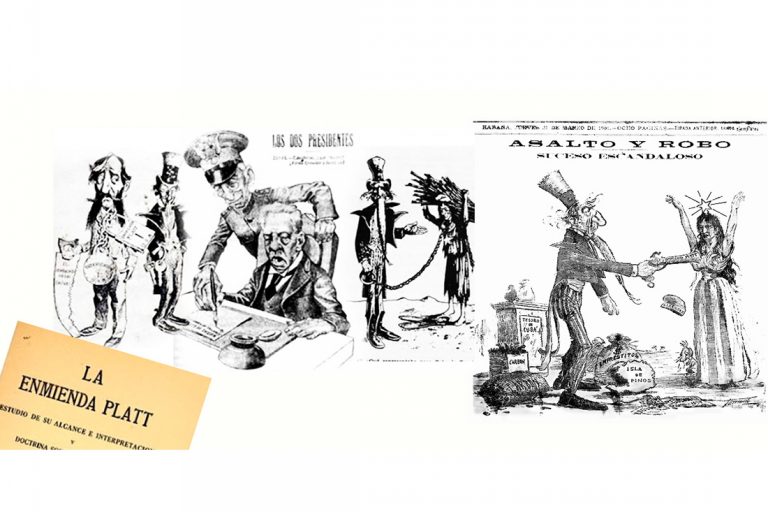On June 16th, 1900, the first elections were held in Cuba, after the end of Spanish sovereignty to elect mayors and other municipal officials. Given the impossibility of applying the annexation formula, the government of the United States, due to the evident popular rejection, was forced to use new ways, the creation of an independent republic, only in appearance.
To draft the necessary Constitution, a Constituent Assembly was organized that began its work in November 1900, and for which Salvador Cisneros Betancourt and Manuel Ramón Silva Zayas were elected by Camagüey. This document specified that future relations between Cuba and the US should be defined as part of the constitutional text or in ordinances added to it.
On February 9th, 1901, the United States government released the content of the “Platt Amendment”; From that moment on, all kinds of efforts were made to change the text of the Amendment, but it was useless; it was then decided to approve, by vote, its final commencement or not. On June 12th, the Platt Amendment was approved by sixteen votes in favor, eleven against and four absent. Salvador Cisneros Betancourt and Manuel Ramón Silva Zayas opposed it with their individual vote.
The people of Camagüey made their discontent felt and on March 10th, 1901 a meeting was called at the Casino Campestre and there were several speakers, including General Maximiliano Ramos, who emphasized that the North American government “wants to take away from us what rightfully belongs to us: absolute independence. ”
After the meeting, a demonstration went through the main streets of the city singing the National Anthem and carrying the Cuban flag, reaching the Civil Government building where Mayor Pedro Mendoza read the letter that would be sent to the North American President in which was claimed the independence of Cuba and the end of the North American intervention. A similar attitude was assumed by the teaching staff and students of the secondary school, as well as various local institutions in total rejection of the Platt Amendment.
The City Council of Puerto Príncipe, on August 12th, 1901, agreed as another sign of anti-imperialism to declare “Adoptive Children of the City” to the nine delegates to the Constituent Assembly who, together with Salvador Cisneros Betancourt and Manuel R. Silva Zayas, voted against the Amendment and were not born on this city.
Translated by: Aileen Álvarez García






